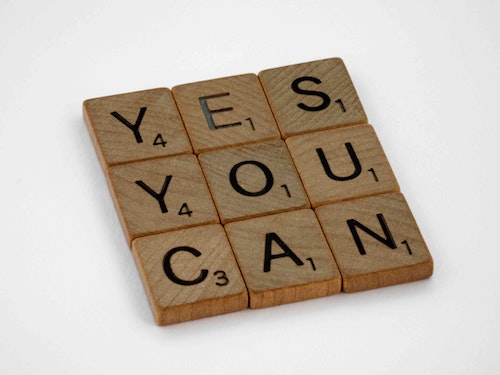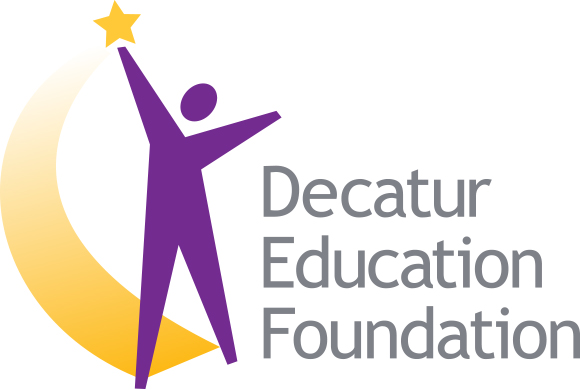
Let’s Resolve to Do Better
One of our greatest writers and thinkers, Maya Angelou, shared this wisdom: Do the best you can until you know better. Then when you know better, do better.
Over the years, Decatur Education Foundation has relied on feedback from caring community members to teach us how to do better.
When DEF first started looking into food insecurity and learned that some of our neighbors needed food support, we crafted a response that involved asking community members to “adopt-a-box” and fill it with food that we could give to a family. Feedback from community members taught us that it was presumptuous to think we knew what types of food a family could use. And, while donating parents used the boxes to teach their children about hunger and food scarcity, it felt like it created a big divide between people. We pivoted to offering Kroger gift cards so that every family could shop for the food they wanted. We also stopped using the word “adopt” when a community member reminded us that, for many families, that term has a profound meaning. When we knew better, we did better.
Five years ago, we started our mentoring program based on the work of Robert Putnam whose book, Our Kids: The American Dream in Crisis, discussed the very real opportunity gap between families based on their income. We named our mentoring program “The Opportunity Partnership” to highlight the fact that we were going to partner with businesses to provide opportunities. I ran into one of our mentors at a coffee shop one day, and she gave me some really important feedback–that calling the program the “Opportunity Partnership” centered DEF as the “giver of opportunities” rather than focusing on the students, who she referred to as scholars. We immediately changed the name to AIM Scholars to focus on the amazing student participants. This important shift in our perspective wouldn’t have happened without her teaching us how to do better.
I’d like to challenge our community to work towards being learners over knowers. This concept is explored in Brené Brown’s research on leadership, which she shares in Dare to Lead, a book that has helped me become a better leader. I’ve been facilitating a Dare to Lead book group for education foundation leaders where we explore the concept of Armored Leadership: Being a Knower and being right versus Daring Leadership: Being a Learner and getting it right. She writes, “Having to be the “knower” or always being right is heavy armor. It’s defensiveness, it’s posturing, and, worst of all, it’s a huge driver of bullshit”. Being a knower means we don’t have to be vulnerable and while we can be tricked into thinking that is a position of strength, it really is a position of weakness. Check out what she has to say HERE, and let me know what you think.
Over the past two years, our community was disconnected and isolated due to the pandemic and divided over our ideas of how best to approach decisions about schools and life. It sometimes feels as if every person on social media is an expert as we all seek to push our ideas on others, or surround ourselves with people who share our views. As we endure this extended pandemic time, it is essential to rethink how we approach each other, so we can heal the fractures and live in community with one another.
During the pandemic, when we couldn’t attend professional development activities in person, I suggested that each DEF team member choose a book they wanted to read that related to their work. One of my books was Adam Grant’s Think Again, the Power of Knowing What You Don’t Know. Grant, an organizational psychologist, examines “why we struggle to update our ideas and opinions and how we can get better at it.”
Check out this article and interview to learn more about this important book:
Later this spring, DEF is hosting “Come Together Decatur”, a 3-hour training for community members. The training will give participants the tools to facilitate listening circles in their schools and community spaces. Listening circles are not a new idea: they are born out of indigenous societies around the world. The purpose of listening circles is to connect and cultivate empathy through storytelling. These circles are not meant to be a discussion or debate but rather an opportunity to hear each other’s perspectives and experiences about a particular topic, problem, or idea. They represent a strategy that encourages learning, empathy and curiosity over certainty.
As DEF moves into our 20th year as an education foundation, I can see clearly that when we have acted from a place of learning and listening, we have more authentically served the community. As a leader, I am committed to continuing to try to be a learner (not always easy) and anchoring myself in flexibility–because if that isn’t the lesson of this pandemic, what is?
